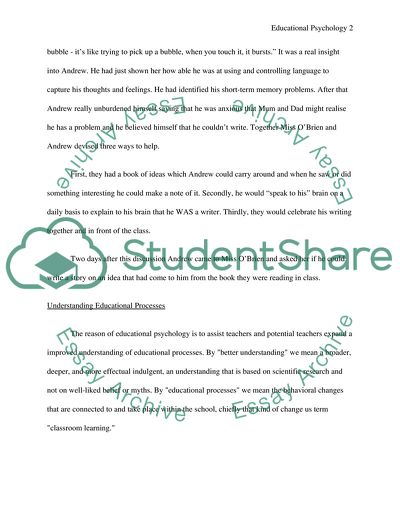Cite this document
(“Educational Psychology Essay Example | Topics and Well Written Essays - 2250 words”, n.d.)
Retrieved from https://studentshare.org/miscellaneous/1526962-educational-psychology
Retrieved from https://studentshare.org/miscellaneous/1526962-educational-psychology
(Educational Psychology Essay Example | Topics and Well Written Essays - 2250 Words)
https://studentshare.org/miscellaneous/1526962-educational-psychology.
https://studentshare.org/miscellaneous/1526962-educational-psychology.
“Educational Psychology Essay Example | Topics and Well Written Essays - 2250 Words”, n.d. https://studentshare.org/miscellaneous/1526962-educational-psychology.


